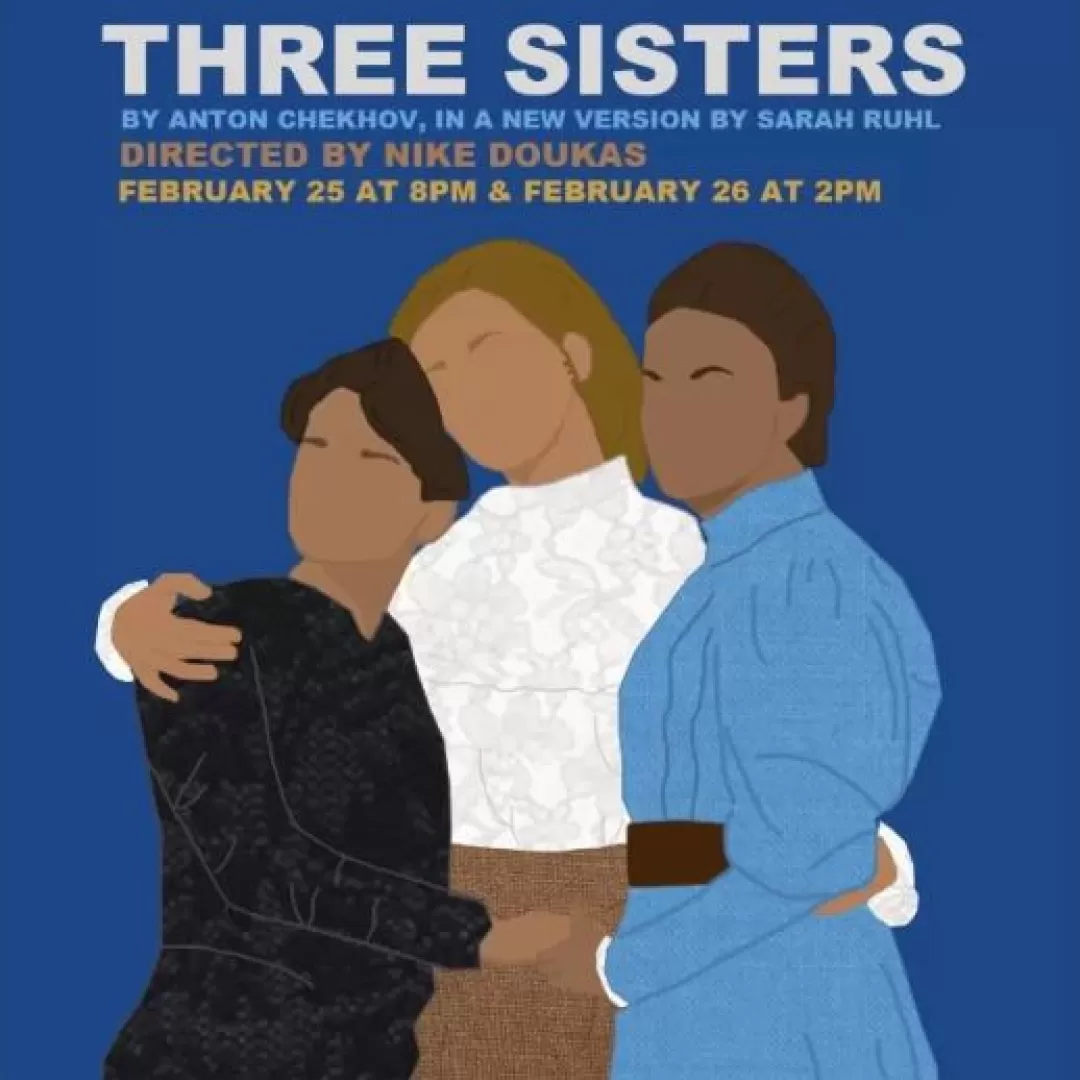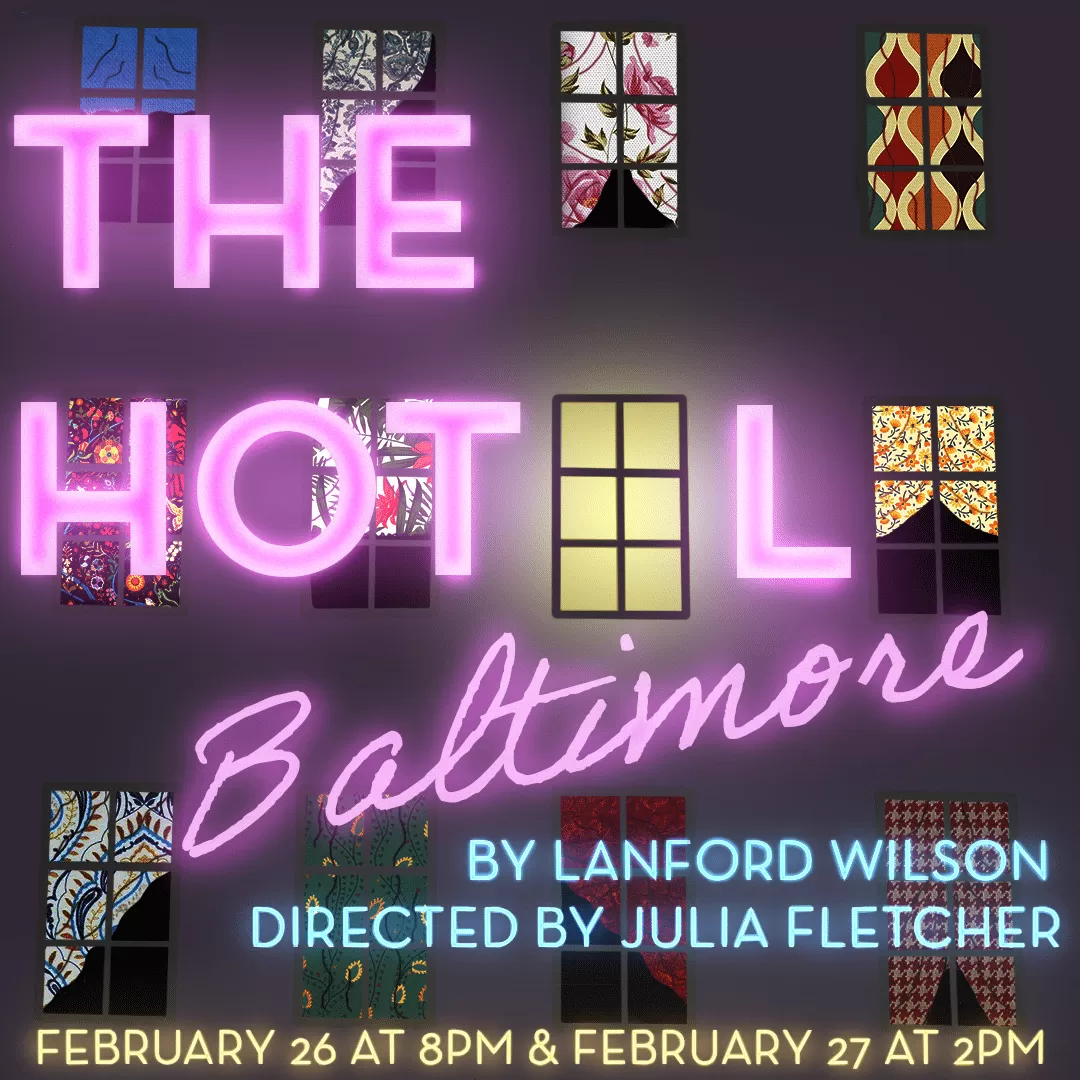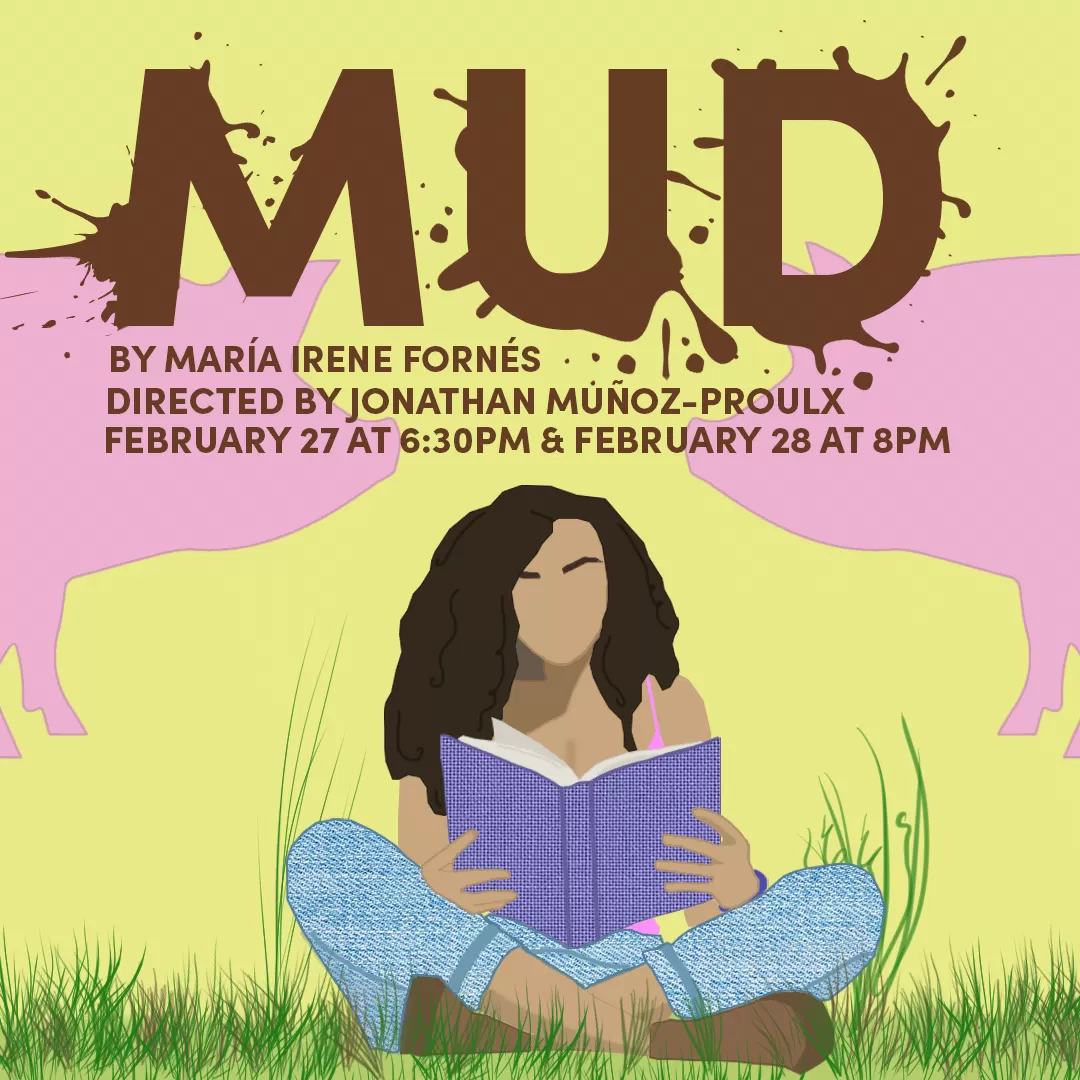Production History: ClassicsFest
2021/22
Three Sisters
Feb 25, 2022 - Feb 26, 2022
Written by: Anton Chekhov, in a new version by Sarah Ruhl
Directed by: Nike Doukas
The Hot L Baltimore
Feb 26, 2022 - Feb 27, 2022
Written by: Lanford Wilson
Directed by: Julia Fletcher
Mud
Feb 27, 2022 - Feb 28, 2022
Written by: María Irene Fornés
Directed by: Jonathan Muñoz-Proulx
2019/20
Rear Column
Apr 12, 2020
Written by: Simon Gray
Directed by: Armin Shimerman
2016
The Life of Galileo
Jan 10, 2016 - Jan 11, 2016
Written by: Bertolt Brecht
Directed by: Tony Amendola
Rosencrantz & Guildenstern Are Dead
Jan 17, 2016 - Jan 18, 2016
Written by: Tom Stoppard
Directed by: John Henry Davis
Tiger at the Gates
Jan 24, 2016 - Jan 25, 2016
Written by: Jean Giraudoux
Directed by: Peter Levin
The Winter's Tale
Jan 31, 2016 - Feb 1, 2016
Written by: William Shakespeare
Directed by: Elizabeth Swain
2015
Moon for the Misbegotten
Mar 15, 2012 - Mar 15, 2015
Written by: Eugene O’Neill
Moony’s Kid Don’t Cry
Jan 3, 2015
Written by: Tennessee Williams
Thank You, Kind Spirit
Jan 4, 2015
Written by: Tennessee Williams
The Strangest Kind of Romance
Jan 10, 2015
27 Wagons Fill of Cotton
Jan 17, 2015
Written by: Tennessee Williams
Vieux Carre
Jan 18, 2015
Written by: Tennessee Williams
Portrait of Madonna
Jan 24, 2015
Written by: Tennessee Williams
Auto-Da-Fe
Jan 24, 2015
Written by: Tennessee Williams
Something Unspoken
Jan 25, 2015
Written by: Tennessee Williams
Mister Paradise
Jan 30, 2015
Written by: Tennessee Williams
A Perfect Analysis Given by a Parrot
Jan 31, 2015
Written by: Tennessee Williams
The Lady of Larkspur Lotion
Feb 1, 2015
Written by: Tennessee Williams
The American Woman
Jul 5, 2015 - Jul 6, 2015
Written by: Velina Hasu Houston
Directed by: Gregg T. Daniel
Holiday
Jul 12, 2015 - Jul 28, 2015
American Portraits
Jul 19, 2015 - Jul 20, 2015
Written by: Devon O’Brien & Clyde Fitch
Directed by: Armin Shimerman
Rashomon
Jul 26, 2015 - Jul 27, 2015
Written by: Fay Kanin & Michael Kanin, based on the stories by Ryunosuke Akutagawa
Directed by: Jeff Liu
The Inland Sea
Nov 1, 2015 - Nov 2, 2015
Written by: Naomi Wallace
Directed by: Amanda McRaven
Moby Dick
Nov 8, 2015 - Nov 9, 2015
Written by: Jon Jory, adapted from Herman Melville
Directed by: Richard Israel
Medusa Undone
Nov 15, 2015 - Nov 28, 2015
Written by: Bella Poynton
Directed by: Julia Fletcher
Who's Afraid of David Hare?
Nov 22, 2015 - Nov 23, 2015
Written by: Kathryn Graf
Directed by: Steven Robman
2014
Diana of Dobson’s
Jan 4, 2014
Written by: Cicely Hamilton
Dunsinane
Jan 5, 2014
Written by: David Greig
The Cherry Orchard
Jan 5, 2014
Written by: Anton Chekhov
Bliss (or Emily Post is Dead!)
Jan 11, 2014
Written by: Jami Brandli
Picnic
Jan 12, 2014
Written by: William Inge
Blithe Spirit
Jan 12, 2014
Written by: Noël Coward
For Piano and Harpo
Jan 17, 2014
Written by: Dan Castellaneta
Mornings at Seven
Jan 18, 2014
Written by: Paul Osborn
Henry IV: Part One
Jan 19, 2014
Written by: William Shakespeare
The London Cuckolds
Jan 24, 2014
Written by: Edward Ravenscroft
Wrecks
Jan 25, 2014
Written by: Neil LaBute
John Gabriel Borkman
Jan 25, 2014
Written by: Henrik Ibsen
The Homecoming
Jan 26, 2014
Written by: Harold Pinter
2013
A Touch of the Poet
Jan 5, 2013
Written by: Eugene O’Neill
Ah, Wilderness
Jan 6, 2013
Written by: Eugene O’Neill
The Master Builder
Jan 6, 2013
Written by: Henrik Ibsen
Hay Fever
Jan 12, 2013
Written by: Noël Coward
Anna Christie
Mar 2, 2013
Written by: Eugene O’Neill
Look Back in Anger
Mar 3, 2013
Written by: John Osborne
Cyrano de Bergerac
Mar 5, 2013
Written by: Edmond Rostand
Much Ado About Nothing
Mar 6, 2013
Written by: William Shakespeare
Beyond the Horizon
Mar 7, 2013
Written by: Eugene O’Neill
Our American Hamlet
Mar 8, 2013
Written by: Jake Broder
The Visit
Mar 8, 2013
Written by: Friedrich Dürrenmatt
Little Women
Mar 10, 2013
Written by: Allan Knee
2012
Oedipus, Part Two
Mar 1, 2012
Written by: Sophocles
Our Country’s Good
Mar 2, 2012
Written by: Timberlake Wertenbaker
The Liar
Mar 2, 2012
Written by: Pierre Corneille
The Crucible
Mar 9, 2012
Written by: Arthur Miller
The Skin of Our Teeth
Mar 10, 2012
Written by: Thornton Wilder
Top Girls
Jul 29, 2012 - Jul 30, 2012
Written by: Caryl Churchill
Directed by: Ann Noble
Mrs. Warren's Profession
Aug 5, 2012 - Aug 6, 2012
Written by: George Bernard Shaw
Directed by: Cameron Watson
King John
Aug 12, 2012 - Aug 13, 2012
Written by: William Shakespeare
Directed by: Elizabeth Swain
Wedding Band
Aug 19, 2012 - Aug 20, 2012
Written by: Alice Childress
Directed by: Gregg Daniel
Grapes of Wrath
Aug 26, 2012 - Aug 27, 2012
Written by: Frank Galati
Directed by: Stephanie Shroyer
Ma Rainey's Black Bottom
Oct 28, 2012 - Oct 29, 2012
Written by: August Wilson
Directed by: Saundra McClain
Under Milk Wood
Nov 4, 2012 - Nov 5, 2012
Written by: Dylan Thomas
Directed by: Frank Dwyer
Don Juan in Hell
Nov 11, 2012 - Nov 12, 2012
Written by: George Bernard Shaw
Directed by: Robert Machray
A Streetcar Named Desire
Nov 18, 2012 - Nov 19, 2012
Written by: Tennessee Williams
Directed by: Apollo Dukakis
The Fox
Nov 25, 2012 - Nov 26, 2012
Written by: Allan Miller, based on a novella by D.H. Lawrence
Directed by: Allan Miller
Cabaret Noel
Dec 3, 2012
Written by: Gigi Bermingham and Matthew Goldsby
Directed by: Barry Creyton
2011
Othello
Jul 9, 2011
Written by: William Shakespeare
Directed by: Kristoffer Tabori
The Doctor's Dilemma
Jul 13, 2011 - Jul 14, 2011
Written by: George Bernard Shaw
Directed by: Michael Murray
The Lucky Chance
Jul 17, 2011
Written by: Aphra Behn
Directed by: Elizabeth Swain
Twelfth Night
Jul 20, 2011 - Jul 21, 2011
Written by: William Shakespeare
Directed by: Claudia Weill
Richard III
Jul 22, 2011 - Jul 23, 2011
Written by: William Shakespeare
Directed by: Frank Dwyer
Lystistrata
Jul 23, 2011 - Jul 24, 2011
Written by: Aristophanes
Directed by: Dana Friedman
Long Day's Journey Into Night
Jul 27, 2011 - Jul 28, 2011
Written by: Eugene O’Neil
Directed by: Steve Robman
Will Who? Double Falsehood
Jul 30, 2011
Written by: William Shakespeare
Directed by: Louis Fantasia
A Delicate Balance
Jul 31, 2011
Written by: Edward Albee
Directed by: Robin Larsen
Macbeth
Aug 3, 2011 - Aug 4, 2011
Written by: William Shakespeare
Directed by: Jessica Kubzansky
Blow Out the Candles: A Tennessee William's B-Day Party
Aug 6, 2011
Written by: Tennessee Williams
Directed by: Douglas Clayton
Caesar and Cleopatra
Aug 7, 2011
Written by: George Bernard Shaw
Directed by: Michael John Garcés
After the Dance
Aug 7, 2011
Written by: Terrance Rattigan
Directed by: Cameron Watson
The Legend of Oedipus
Aug 9, 2011 - Aug 10, 2011
Written by: Kenneth Cavander
Directed by: Casey Stangl
The Third Act Project
Aug 13, 2011 - Aug 14, 2011
Written by: Anton Chekhov
Directed by: Jeanie Hackett
The Matchmaker
Aug 17, 2011 - Aug 18, 2011
Written by: Thornton Wilder
Directed by: William Ludel
You Can't Take it With You
Aug 21, 2011
Written by: George S. Kaufman and Moss Hart
Directed by: Gigi Bermingham
2010
Arcadia
Mar 1, 2010
Written by: Tom Stoppard
Directed by: Andrew Traister
The Helen Fragments
Mar 2, 2010
Written by: Euripides
Directed by: Michael Hackett
Les Femmes Savantes
Mar 3, 2010
Written by: Moliere
Directed by: Robert Goldsby
Peace in Our Time
Mar 4, 2010
Written by: Noël Coward
Directed by: Jessica Bard
The Capulets and the Montagues
Mar 5, 2010
Written by: Lope De Vega
Directed by: Anne McNaughton
Juno and the Paycock
Mar 8, 2010
Written by: Sean O’Casey
Directed by: Allan Miller
The Malcontent
Mar 9, 2010
Written by: John Marston
Directed by: Elizabeth Swain
Les Blancs
Mar 11, 2010
Written by: Lorraine Hansberry
Directed by: Gregg T. Daniel
The Merry Wives of Windsor
Mar 11, 2010
Written by: William Shakespeare
Directed by: Armin Shimerman
Faith Healer
Mar 12, 2010
Written by: Brian Friel
Directed by: Bart DeLorenzo
The Dumb Waiter
Mar 15, 2010
Written by: Harold Pinter
Directed by: Etta Devine
Dramatis Personnae
Mar 16, 2010
Written by: Noël Coward
Directed by: Christopher Morrison
2008
The Autumn Garden
Mar 1, 2008
Written by: Lillian Hellman
Directed by: Larry Biederman
Cousin Bette
Mar 2, 2008
Written by: Honore de Balzac and Jeffrey Hatcher
Directed by: Jeanie Hackett
The Glass Menagerie
Mar 2, 2008
Written by: Tennessee Williams
Directed by: Young Ji
Light Up the Sky
Mar 4, 2008
Written by: Moss Hart
Directed by: William Ludel
Medea
Mar 5, 2008
Written by: Euripides
Directed by: Elizabeth Swain
Rhinoceros
Mar 6, 2008
Written by: Eugène Ionesco
Directed by: Theresa Rebeck
Richard III
Mar 8, 2008
Written by: William Shakespeare
Directed by: Armin Shimerman
The Rover
Mar 9, 2008
Written by: Aphra Behn
Directed by: Brendon Fox and Jeanie Hackett
Troilus and Cressida
Mar 10, 2008
Written by: William Shakespeare
Directed by: Francia DiMase
The Voysey Inheritance
Mar 11, 2008
Written by: Harley Granville-Barker
Directed by: Barnet Kellman
The Women
Mar 12, 2008
Written by: Clare Boothe Luce
Directed by: Robert Goldsby
Zastrozzi
Mar 12, 2008
Written by: George F. Walker
Directed by: Daniel Blinkoff
2006
Who’s Afraid of Virginia Woolf?
Mar 1, 2006
Written by: Edward Albee
A Penny for a Song
Jul 6, 2006 - Jul 7, 2006
Written by: John Whiting
Directed by: Meryl Friedman
Little Water
Jul 8, 2006
Written by: Seamus Dever
Directed by: Rick Sparks
Sweet Mercy
Jul 8, 2006 - Jul 9, 2006
Written by: Melody Cooper
Directed by: Claudia Weill
The Quality of Mercy
Jul 11, 2006 - Jul 12, 2006
Written by: The Antaeus Academy Company
Directed by: Nike Doukas, Jeanie Hackett, and Geoffrey Wade
Prince Poupon Needs a Wife
Jul 13, 2006 - Jul 14, 2006
Written by: Oscar Mandel
Directed by: Brendon Fox
The Doctor Chekhov
Jul 15, 2006
Written by: Toby Campion
Directed by: Lisa James
Stirrings Still
Jul 16, 2006 - Jul 23, 2006
Written by: Samuel Beckett
A Month in the Country
Jul 20, 2006 - Jul 21, 2006
Written by: Ivan Turgenev
Directed by: Tom Moore
The Menachmus Twins
Jul 22, 2006
Written by: Titus Maccius Plautus
Directed by: Anne McNaughton
The Father
Jul 29, 2006 - Jul 30, 2006
Written by: August Strindberg
Directed by: Stephanie Shroyer
No Man's Land
Aug 1, 2006 - Aug 2, 2006
Written by: Harold Pinter
Directed by: Bart DeLorenzo
Phaedra
Aug 3, 2006 - Aug 4, 2006
Written by: Lucius Annaeus Seneca
Directed by: Stephanie Shroyer
Oh George
Aug 5, 2006
Written by: Matthew Goldsby
Directed by: Angela Paton
Act a Lady
Aug 5, 2006 - Aug 6, 2006
Written by: Jordan Harrison
Directed by: Claudia Weill
Agamemnon and His Daughters
Aug 6, 2006
Written by: Kenneth Cavander
Directed by: Stefan Novinsky
Coriolanus
Aug 12, 2006 - Aug 13, 2006
Written by: William Shakespeare
Directed by: Mark Rucker
2004
The Dickens Project
Mar 4, 2004
Written by: Janet Dulin Jones and Paul Lazarus
Directed by: Paul Lazarus
Nora
Mar 5, 2004
Written by: Henrik Ibsen, adaption by Ingmar Bergman
Directed by: Jane Fleiss Brogger
Collaborators
Mar 6, 2004
Written by: Jonathan Lynn
Directed by: Jonathan Lynn
Poems in My Pocket
Jun 4, 2004 - Jun 5, 2004
Written by: William Shakespeare, Esna St. Vincent Millay, Charles Bukowski, Dorothy Parker, Walt Whitman, and many more.
Directed by: Jeanie Hackett
Bartleby, the Scrivener
Jun 5, 2004 - Jun 13, 2004
Written by: Herman Melville
Directed by: Michael Lilly, Musical Direction by Jan Powell
American Buffalo
Jun 9, 2004 - Jun 17, 2004
Written by: David Mamet
Directed by: Stephanie Shroyer
Twelfth Night
Jun 12, 2004 - Jun 16, 2004
Written by: William Shakespeare
Directed by: Matthew Henerson




